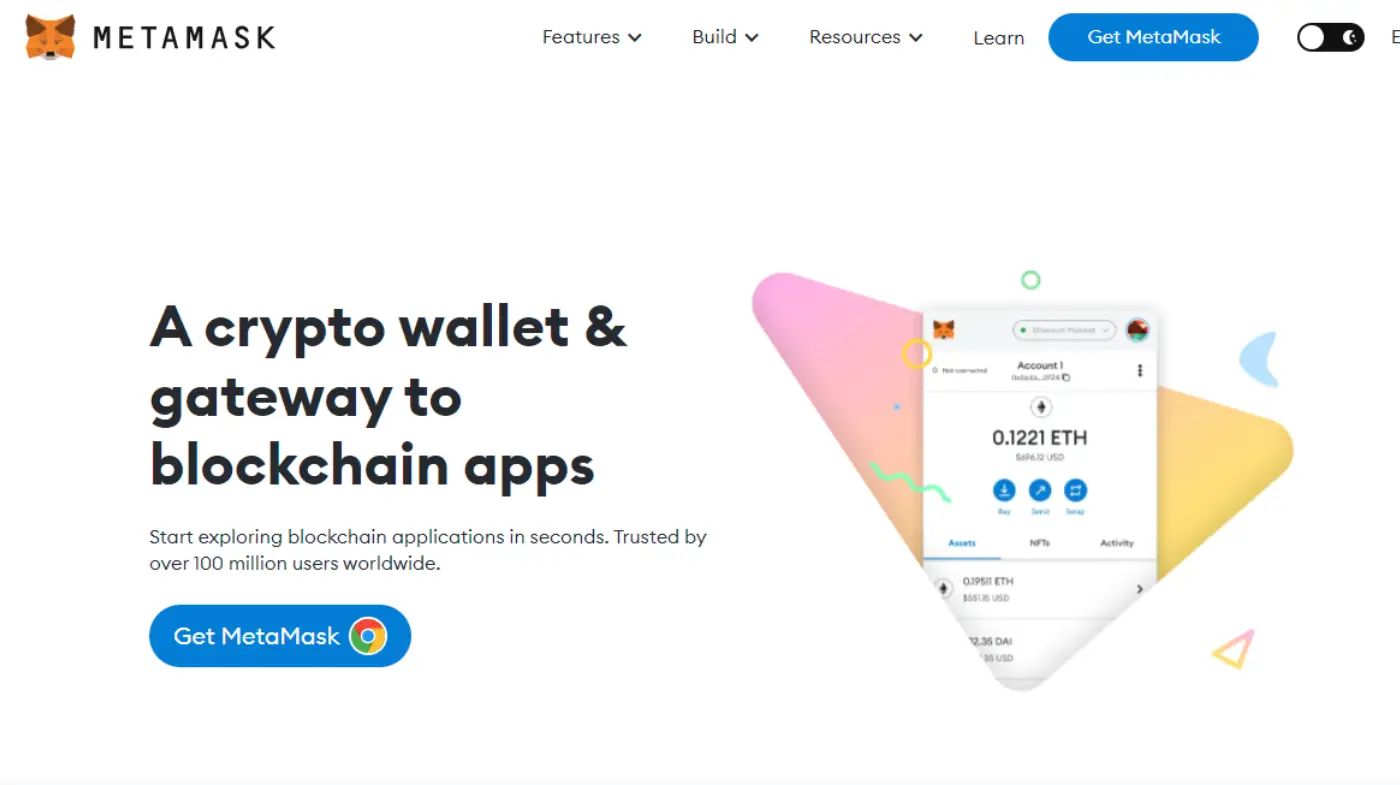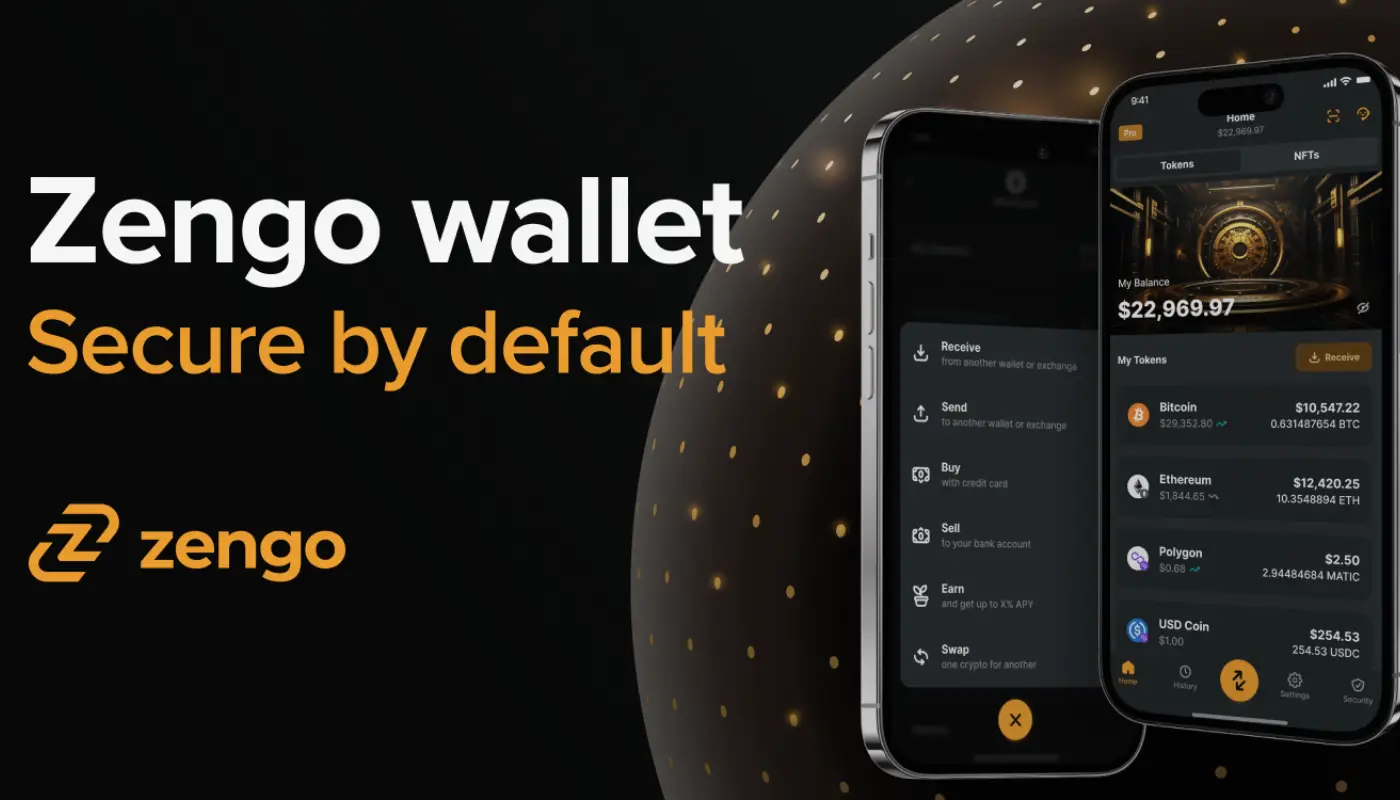Cryptocurrency, for some time a fringe concept, now represents a global financial force in just over a decade. From the first Bitcoin block mined by Bitcoiners to the vast number of altcoins that are emerging today, the evolving crypto landscape continues to transform the finance industry.
With the rise of digital currencies comes the need for more advanced and intelligent methods of storing, accounting, and trading these assets.
The next phase in this evolution is AI-powered crypto wallets. Whether you’re new to crypto or a seasoned investor, an AI-based wallet is rapidly becoming a must-have tool for all users.
- What Is An AI Integrated Smart Crypto Wallet?
- Key Features Of AI Integrated Smart Crypto Wallets
- Security And Fraud Detection
- Smart Transaction Management
- Autonomous Risk Management
- Personalized Portfolio Recommendations
- Enhanced Customer Support
- Tax Reporting
- Enhanced Privacy And Data Security
- Token And Asset Discovery
- Automated Trade Execution
- AI Smart Crypto Wallet Examples
- AI Crypto Wallet Challenges
- Significant Knowledge And Expertise Required
- Security And Privacy Concerns
- Resource Management And Scalability
- AI Bias And Inaccuracy
- Regulatory Compliance
- Constant User Education And Support
- Conclusion
- FAQs
This guide takes a look at what AI integrated smart wallets are, their most notable features, and some wallet products with AI functionalities.
What Is An AI Integrated Smart Crypto Wallet?
An AI-integrated crypto wallet is a hybrid combination of some features of a conventional wallet and the strengths of artificial intelligence. The idea is to deliver a richer, more intelligent experience.
While a basic crypto wallet’s primary job is to store your digital assets and allow transactions, AI wallets go much further by offering intelligent and more advanced features that enhance your ability to manage and grow your investments.
Key Features Of AI Integrated Smart Crypto Wallets

AI smart crypto wallets have a number of compelling attributes that make them more efficient and appealing to both wallet producers and users. Below are some of them.
Security And Fraud Detection
AI incorporates biometric identification, such as facial or fingerprint identification, thereby increasing the security of the wallet as a whole.
Additionally, the use of real-time behavioral analytics by AI in smart crypto wallets to track user behavior and spot suspicious patterns helps enhance security, e.g., by identifying unauthorized access or fraud.
Furthermore, machine learning is constantly becoming more effective in the detection of phishing, malware, and other security concerns.
Smart Transaction Management
Through the use of predictive analytics, AI boosts transaction management by identifying the optimal times for transactions through an analysis of historical data and market conditions.
AI can also be used to automatically adjust gas fees so as to minimize transaction costs for users costs.
Autonomous Risk Management
AI grades the risk of all assets in a portfolio by analyzing characteristics like volatility or liquidity and subsequently providing automated risk management and risk mitigation options.
In addition, by using AI, a portfolio can be automatically rebalanced according to the changes in the market or given investment targets.
Personalized Portfolio Recommendations
AI crypto wallets provide personalized investment portfolio recommendations based on the user’s risk appetite and pre-determined objectives as well as current market dynamics.
This can be through the use of market sentiment analysis to provide information about which asset to buy/sell.
AI can also leverage the user’s transaction history to deliver information about spending habits and likely investment results.
Enhanced Customer Support
AI-based chatbots and virtual assistants leveraging natural language processing (NLP) assist customers by providing answers to their queries and tips on wallet management, among others.
Tax Reporting
AI systems help users with tax information by automatically producing tax reports based on transaction information, such as tracking capital gains.
Enhanced Privacy And Data Security
AI has been shown to be able to enhance encryption techniques and, therefore, improve the security of private keys and other wallet data.
Additionally, AI can utilize user behavior or preferences to automatically adjust privacy settings (e.g., transaction obfuscation) to protect user data.
Token And Asset Discovery
AI searches for emerging tokens or projects and analyzes their legitimacy, potential risks, and market applicability. It also tracks emerging market trends to identify cryptocurrencies or DeFi projects whose values are likely to appreciate.
Automated Trade Execution
AI trading bots can execute trades based on user-specified parameters, e.g., specified price points or technical indicators. Smart contracts are also automated by AI, triggering transactions when specific conditions, like price changes or market events, are met.
AI Smart Crypto Wallet Examples
AI has gradually evolved to help make crypto wallets more efficient products. Below are some wallets that have incorporated AI-related features.
Trust Wallet

Trust Wallet, owned by Binance, is a widely used mobile crypto wallet that has a built-in security scanner which uses AI to scan for potential risks in addresses used in transactions.
Any time, a Trust Wallet user starts a transaction, the scanner not only scrutinizes the recipient’s address but also assigns it a risk level. If it identifies a potential risk, it sends the user a warning message.
Trust Wallet is one of the wallets that support Fetch.ai, a pioneering crypto project that uses that aims to utilize the power of AI to cause a revolution in digital economies and decentralized finance. Trust Wallet enables users to buy, sell, and swap FET, the native cryptocurrency of Fetch.ai.
Exodus Wallet

Exodus Wallet is a desktop and mobile crypto wallet that incorporates AI-driven real-time portfolio tracking information that can be used to maximize a portfolio’s holdings and to make smarter decisions as influenced by market conditions.
Crypto users can also use the wallet’s biometrics feature to enable face or fingerprint scanning to ensure protection against unauthorized access. For customer queries, Exodus has an AI chatbot for its mobile and website versions.
MetaMask Wallet

MetaMask is one of the most commonly used crypto wallet protocols, especially for Ethereum and tokens/applications built around Ethereum.
MetaMask AI is capable of automatically detecting and flagging suspicious transactions, including those conducted with unknown addresses or involving huge amounts. This provides an additional layer of security against fraudulent activities. Furthermore,
Additionally, MetaMask AI streamlines wallet transactions by automatically providing transaction information, such as token amounts and gas fees based on the previous transactions of the user, thus minimizing the probability of error while also saving time.
ZenGo Wallet

ZenGo is a modern, non-custodial wallet that implements an AI-based key management mechanism that works through facial recognition and threshold signatures (rather than conventional seed phrases) to protect user assets from key loss or forgetfulness.
With the wallet’s AI-powered recovery system, access restoration without a backup can be done smoothly, meaning users can easily regain access to their assets in the event of a lost device.
The Zengo Wallet also offers real-time risk assessments and alerts that guard against Web3 security breaches.
AI Crypto Wallet Challenges

Despite the appeal, benefits and adoption of AI-integrated smart crypto wallets, a number of challenges confront those responsible for integrating AI systems into blockchain technology. Here are some of them:
Significant Knowledge And Expertise Required
Fusing AI into blockchain technology is a complex (and potentially costly) process that requires in-depth knowledge of both fields.
A wallet maker that intends to hire AI personnel must ensure they are bringing in employees capable of training AI algorithms to operate efficiently within the scope of the host blockchain’s processing capabilities.
Security And Privacy Concerns
Although AI systems promise advanced security features, the reality is that a completely safe security mechanism does not exist for now in any crypto wallet.
No matter how secure they tend to be, AI systems are always possible targets for vulnerabilities like unauthorized access or theft of private keys.
Additionally, since AI-powered systems have the potential to gather vast amounts of personal data, there may be a likelihood of compromising user privacy if such data is improperly managed.
Resource Management And Scalability
Significant computational power is often required to process AI algorithms. Hence, increased adoption of AI by crypto wallets can also translate to increased demand for processing power, bandwidth and storage.
Wallets who cannot meet these requirements may have to contend with slower transaction times, or higher operating costs, both of which can negatively impact a wallet’s ability to scale efficiently.
In other words, balancing AI functionality with network resource limitations can be a critical challenge.
AI Bias And Inaccuracy
AI models are as good as the data they are trained with. So data sets that contain biases or inaccuracies could lead to questionable decisions by an AI model.
Wrongly trained AI algorithms could erroneously classify a legitimate transaction as suspicious or fail to flag fraudulent conduct.
Also, incorrect AI predictions in the context of autonomous trading or transaction validation can lead to financial losses.
Regulatory Compliance
Integrating AI into crypto wallets has to be carried out in consideration of diverse global regulations such as know-your-customer (KYC) and anti-money laundering (AML) rules. These regulations usually differ according to country and are subject to changes.
Developers must ensure they create AI smart wallets that scale all necessary regulatory hurdles while simultaneously providing a seamless user experience.
For more information, you can read our guide on what KYC is.
Constant User Education And Support
Although most AI technologies strive to be beginner- or user-friendly, it is still important to constantly educate users on how they work and what their benefits and limitations are.
AI crypto wallet providers have to offer users transparent documentation, comprehensive tutorials, and responsive support in order to help their clients understand the AI-driven features of their products.
This can be especially critical when considering complex or advanced AI mechanisms such as automated asset management or predictive market analysis.
Non-technical users who don’t have a holistic understanding of how such AI features work or those who perceive it as too complicated may be reluctant to use advanced features or shun the wallet for simpler alternatives.
Conclusion
AI-integrated smart crypto wallets are helping revolutionize how people manage their virtual assets.
They complement traditional crypto wallets by offering advanced features such as higher security, the ability to give tailored guidance, and automatic transaction management capabilities, among others.
Hence, these new-generation AI agents have become a necessity for anybody who stores and transacts cryptocurrencies, whether they are beginners or advanced investors.
As the influence of cryptos in finance continues to expand, it is expected that AI will keep playing an important role in digital asset management and that the challenges of integrating AI into blockchain will be addressed.
FAQs
-
What is an AI-integrated smart crypto wallet?
An AI-powered smart crypto wallet is a type of digital wallet that integrates artificial intelligence into the traditional aspects of wallet management, so as to offer an intelligent and secure experience in handling cryptocurrencies. Not only do these wallets hold digital assets such as Bitcoin and Ethereum, but also they leverage machine learning to provide functionalities including higher security automated transactions customized investment recommendations and market forecasts.
-
Do AI cryptocurrency wallets offer greater security than conventional cryptocurrency wallets?
Generally speaking, AI-type crypto wallets have increased security features than conventional wallets. AI-driven wallets can continuously track user behaviour, identify unusual activity, and, apply controls in real time. While traditional wallets rely on static rules or manual security measures like PIN codes or private keys, AI wallets are constantly evolving to recognize emerging threats, such as phishing attempts or malware that might bypass conventional security measures. Nevertheless, it is most important to use AI wallets from trusted vendors and to adhere to security best practices such as turning on multi-factor authentication (MFA).
-
Are AI crypto wallets easy to use for beginners?
Yes, AI-based wallets are usually built for ease of use and intuitiveness, even for newbies. These wallets often come with guided setups and straightforward interfaces that allow users to set up their wallets, make transactions, and view portfolio performance without technical expertise. In addition, AI’s capabilities in providing personal recommendations and automating tasks make things easier for novices by assisting their decision-making and trading process, thereby simplifying the management of their crypto portfolio. However, do not hesitate to contact your wallet provider if confused.
-
Can AI crypto wallets be used on mobile devices?
Yes, AI crypto wallets are available as mobile apps, allowing users to manage their assets on the go. Mobile versions of these wallets typically retain the core AI features—such as predictive analytics, automated trading, and personalized recommendations—while offering the convenience of portability. Mobile wallets also facilitate real-time transaction monitoring and market updates, so users can always stay connected to the crypto world from any location with internet access.
-
What are the risks of using an AI crypto wallet?
Although AI wallets come with several benefits, there are also potential risks to consider about them. AI systems are only as good as the data they are trained on. If the algorithm makes a biased or inaccurate decision based on incorrect data, it could result in financial losses. Another area of concern is security. While AI can boost security, no system is completely immune to hacking or cyberattacks. Therefore, always endeavour to apply all possible security measures.










